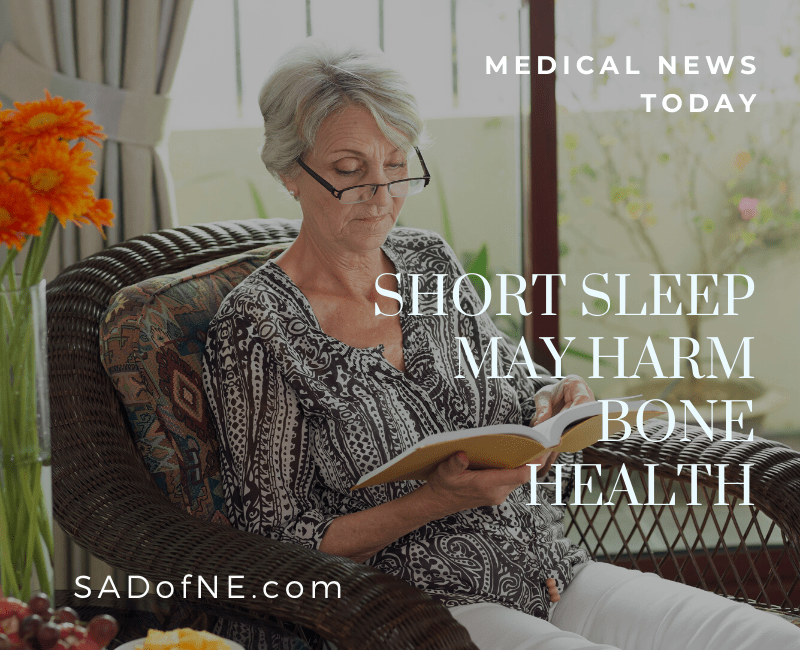
Can insufficient sleep be harmful to bone health? New research in postmenopausal women has found that those who slept for no longer than 5 hours per night were most likely to have lower bone mineral density (BMD) and osteoporosis.
A team from the University at Buffalo, NY, led the study of 11,084 postmenopausal women, all of whom were participants in the Women’s Health Initiative.
A recent paper in the Journal of Bone and Mineral Research gives a full account of the findings.
The investigation follows an earlier one in which the team had linked short sleep to a higher likelihood of bone fracture in women.
Our study suggests that sleep may negatively impact bone health, adding to the list of the negative health impacts of poor sleep. I hope that it can also serve as a reminder to strive for the recommended 7 or more hours of sleep per night for our physical and mental health.
Heather M. Ochs-Balcom, Ph.D. Lead Study Coordinator
Bone remodeling and osteoporosis
Bone is living tissue that undergoes continuous formation and resorption. The process, known as bone remodeling, removes old bone tissue and replaces it with new bone tissue.
If you are sleeping less, one possible explanation is that bone remodeling isn’t happening properly.
Ochs-Balcom
The term osteoporosis means porous bone and refers to a condition that develops when the quality and density of bone are greatly reduced. Osteoporosis is more common in older adults, with older women having the highest risk of developing it.
In most people, bone strength and density peak when they are in their late 20s. After that, as they continue to age, the rate of bone resorption gradually overtakes that of formation. The bone density of women reduces more rapidly during the first few years after menopause.
Worldwide, around 1 in 3 women and 1 in 5 men in their 50s and older are at risk of experiencing bone fracture due to osteoporosis, according to the International Osteoporosis Foundation.
The most common sites of fracture in people with osteoporosis are the hips, wrists, and spine.
Spinal fractures can be serious, resulting in severe back pain, structural irregularities, and loss of height. Hip fractures are also of concern, as they often require surgery and can lead to loss of independence. They also carry a raised risk of death.
